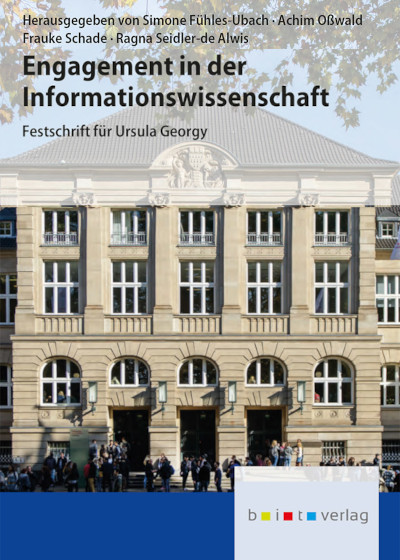 WEITERE NEWS
WEITERE NEWS
- Friedenspreis des Deutschen Buchhandels: Hadija Haruna-Oelker und Mirjam Zadoff neue Mitglieder im Stiftungsrat
- Neue HFD-Publikation: „Die KI-Nutzung in Studium und Lehre“ – Hochschulforum Digitalisierung
- AI Act kommt nach Deutschland
- KDA-Vorständin Zurkuhlen: Teilzeit ist eine essenzielle Säule der Wirtschaft
- Gemeinsam medizinisches Wissen schützen
- Gaming Lounge der Bibliothek Berlin-Mitte erhält Preis für digitales Miteinander
- Neue deutsch-lettische Online-Seminar-Reihe startet!
- Von Prinzipien der Informationsverarbeitung des Gehirns profitieren

Aktuelles aus
L
ibrary
Essentials
In der Ausgabe
- Soziale Medien und Aufmerksamkeitsentwicklung bei Kindern: Neue Langzeitdaten zur ADHS-Risikodiskussion
- Repositorien im Wandel: Analyse zentraler Einflussfaktoren für die nächsten Jahre
- Wie inklusiv Sammlungen in Bibliotheken und Archiven wirklich sind
- Synergien von KI-Chat und Suche:
Wie unterschiedliche Altersgruppen
Information Retrieval neu gestalten - Kulturerbe-Daten im Zeitalter der KI:
Ein neues Zugangsmodell für Institutionen - Jugendliche, soziale Medien und KI-Chatbots: Digitale Nutzungsrealitäten 2025
- Buchclubs als unterschätzte Brücke zwischen Campusleben und Bibliothek: Neue Impulse aus US-Hochschulbibliotheken
- AI Librarian in Japan
- Altersgrenzen für soziale Medien:
Europas nächste Regulierungsdebatte - KI und Journalismus:
Neue Machtverschiebungen
im Markt für Nachrichteninhalte - Print ist tot, es lebe Print!

fachbuchjournal























































